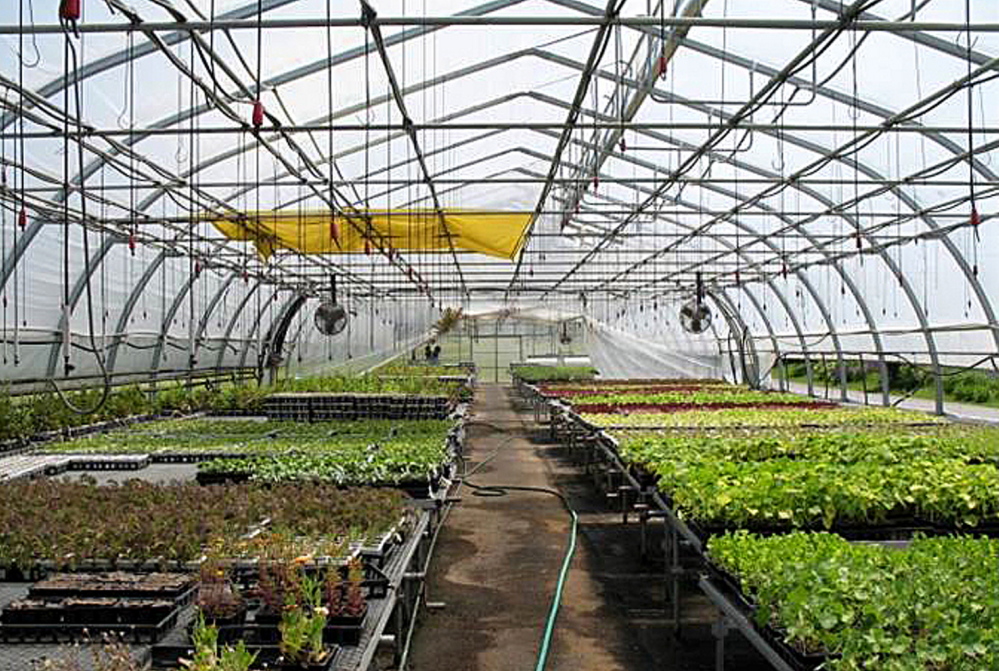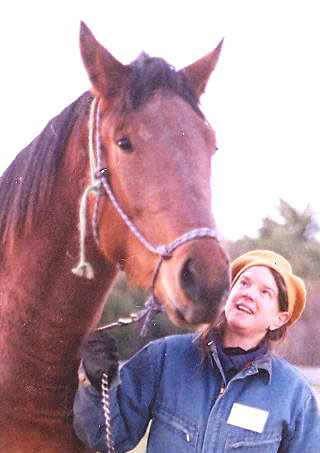About a year ago, Isabel McKay and her husband, Rick Thompson, closed Half Moon Gardens, their 20-acre farm and greenhouses in Thornike.
For eight years, they grew plants, vegetable seedlings, organic lettuce and supplied pet food, farm supplies and livestock feed to the public.
“When we bought the greenhouse in 2005, gas prices were under two dollars per gallon. People would come from Augusta, Bangor, Waterville, Belfast. As prices crept up, people were being very careful as to how far they traveled. Thorndike isn’t a big commercial center where people can get a lot of things done at once,” said McKay, 54, of Brooks. She said the business couldn’t run on local retail alone, but it was too big to sell in the hopes of making a profit. The farm’s five greenhouses total about 32,000 square feet of growing space.
“Who’s going to buy a greenhouse of that size in a very rural area?” said McKay. “It would be better suited for education.”
McKay and Thompson recently gave the land and buildings to Unity College, about three miles away, with plans to expand its sustainable agriculture program. The gift is valued at $1.2 million, made up of the property and greenhouses and a $1 million financial donation — the second largest in the school’s history, to cover the operating cost for five years, said McKay. The largest donation was a $10 million anonymous one in 2011.
“This expands the possibilities and capabilities of what our faculty and students can do. It’s really a substantial gift and something we’re very excited about,” said Melik Khoury, Unity College’s senior vice president of external affairs.
With the planned expansion, Unity College joins Kennebec Valley Community College in Fairfield as one of two area schools that are developing programs to teach hands-on agricultural skills. KVCC launched two new agriculture programs this year and plans to add another two in 2014.
Unity’s sustainable agriculture program, which started in the fall of 2012, enrolls about 15 students, but the college is hoping to expand it with the donation, said Khoury.
The liberal arts college in Unity was founded in 1965. It enrolls about 550 students and has a core curriculum based in environmental science. Other majors include environmental law, marine biology and parks and forest resources. The freshmen class has 179 students, a 16 percent increase from 2012, said Mark Tardiff, associate director of communications.
“The idea is to create innovative approaches to teaching sustainable agriculture. We’re going to have faculty research, we’re going to be working with the community and our students will have a better first-hand approach to what it means to be working on a farm. In many small schools, there’s a small greenhouse in the corner. This gives us a new dimension. Our students will have real, live experience working with faculty to learn their trade,” he said.
A director is expected to be hired by May 1 and students and faculty will be setting up experiments and using the new facilities as early as February, said Doug Fox, a professor of sustainable agriculture and director of the Center for Sustainability and Global Change at the college.
The investments in sustainable agriculture mark a shift in the college’s focus on the future for students and the state of Maine, he said.
“We really believe in rural enterprise and seeing more small businesses start up in Maine, from small farms to other types of rural enterprise. We really want to see more and more entrepreneurship within environmental work,” said Fox.
Maine’s capacity for food production could increase using climate controlled environments such as greenhouses to produce, said Fox. The college already grows spinach year-round using only sunlight for its on-campus dining hall, he said, and they hope to expand winter production with other hardy crops.
“We really believe Maine can do more year-round agriculture production than we’re currently doing. But we’re only interested in doing that if we can do so in an energy-efficient manner,” said Fox.
The greenhouses at Half Moon are equipped with a solar thermal heating system, which will also be studied by the college’s sustainable energy students, he said.
Growing more food for consumption by students was the initial idea that McKay had for the farm, but there are other possibilities too. She said the greenhouse is an opportunity for students to learn how to grow crops year-round, sell products to the public and run a business.
“There’s a lot more to farming than growing it. You’ve got to learn how to market it, how to take care of your own books. That’s all part of learning how to be sustainable,” said McKay. Since the closure of Half Moon Gardens she has been running her family farm, Stantial Brook Farm, in Brooks.
Rachel Ohm— 612-2368 rohm@centralmaine.com
Send questions/comments to the editors.





Success. Please wait for the page to reload. If the page does not reload within 5 seconds, please refresh the page.
Enter your email and password to access comments.
Hi, to comment on stories you must . This profile is in addition to your subscription and website login.
Already have a commenting profile? .
Invalid username/password.
Please check your email to confirm and complete your registration.
Only subscribers are eligible to post comments. Please subscribe or login first for digital access. Here’s why.
Use the form below to reset your password. When you've submitted your account email, we will send an email with a reset code.